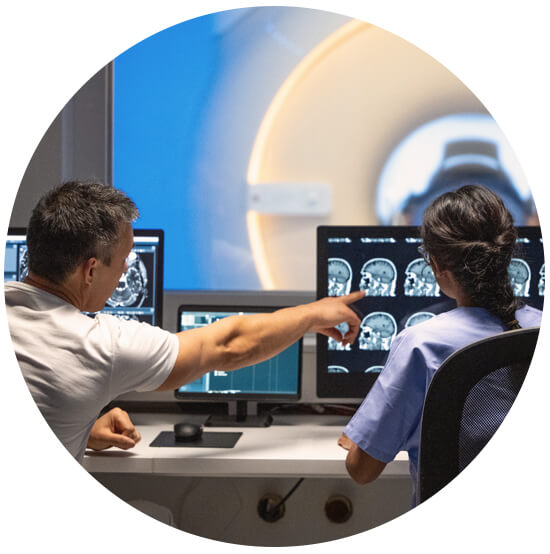
What is Nuclear Medicine?
Nuclear Medicine is a specialized area of radiology that uses small amounts of radioactive materials (or tracers) to help diagnose a variety of diseases. Nuclear Medicine determines the cause of the medical problem based on the function of the organ, tissue or bone.
Although Nuclear Medicine is commonly used for diagnostic purposes, it also has valuable therapeutic applications such as treatment of thyroid disorders, cancer and blood imbalances.

What is Positron Emission Tomography (PET)?
Positron Emission Tomography (PET) scans involve an injection of a safe radioactive tracer that helps detect diseased cells. These scans provide images that pinpoint the location of abnormal metabolic activity within the body.
Positron emission tomography (PET) scans are used to detect early signs of cancer, heart disease and brain conditions.
What to Expect
You are given a small dose of radioactive material (tracer) usually intravenously but sometimes orally, that localizes in specific body organ systems. Depending on what part of your body is being studied, the test may be done right away or you may need to wait a few hours or even days. Imaging time varies, generally ranging from 20 to 45 minutes.
During your test, you will lie on an imaging table while a large camera is placed close to your body. While the images are being obtained, you must remain as still as possible.
Preparing for Your Exam
There is a wide variety of nuclear medicine procedures, and each one has different preparation requirements.
To ensure accurate test results, follow the preparation instructions given when scheduling your appointment. When making your appointment, please indicate any medications you are taking or if you have any special needs. Women should inform their physician and the technologist if there is any possibility that they may be pregnant.
